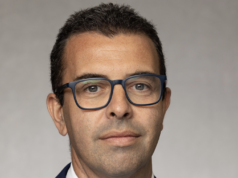
Tim Resch (University of Copenhagen, Copenhagen, Denmark) gives an update on the SUNDAY trial, which is set to provide some much-needed data on treatment options for uncomplicated type B aortic dissection (TBAD).
What is the SUNDAY trial?
The SUNDAY trial is a clinical study investigating the best treatment approach for patients with uncomplicated TBAD. It is a randomised, open-label trial conducted across the Nordic countries, including Denmark, Sweden, Norway, Finland, and Iceland. The trial compares two treatment strategies for uncomplicated TBAD patients: standard medical therapy (SMT) alone versus SMT combined with thoracic endovascular aortic repair (TEVAR). SMT typically involves controlling blood pressure and providing pain relief, with β-blockers as first-line treatment.
What data are you hoping to gain from the trial?
The primary aim of the SUNDAY trial is to determine whether the addition of TEVAR improves fiveyear survival rates compared to SMT alone. Secondary outcomes include aortic-related mortality, neurological events, quality of life, reinterventions, and healthcare costs. The trial aims to enrol around 554 patients and follow them for up to five years. The trial design is pragmatic, meaning it tries to reflect real-world practices by allowing flexibility in the type of TEVAR procedure performed and SMT management based on local protocols. This study seeks to address a crucial question: does early intervention with TEVAR offer significant survival benefits in uncomplicated cases of TBAD? Previous research suggested potential benefits, but larger, randomised trials like SUNDAY are needed to provide definitive answers.
How is enrolment going?
The SUNDAY trial has initiated all 21 major vascular centers in the Nordics and enrolled 60 patients to date. There are some significant challenges with running a large, multicentre randomised controlled trial (RCT). So far, we have encountered a number of subjects that present with pathologies which are not typical for textbook aortic dissections and thus pose challenges to inclusion. The inclusion period is relatively long after symptoms occurrence and this might lead to selection bias if criteria are not adhered to and the intent of the trial followed. Being a strategy-based trial (like the IMPROVE trial for ruptured abdominal aortic aneurysm [AAA]) it is important that investigator truly attempt to include and randomise patients before evaluating the applicability of a TEVAR procedure or the trial might be biased towards “cherry picking” only anatomically appealing candidates which might skew the trial in favour of TEVAR. The strategy-based setup will likely lead to a number of crossover cases post randomisation but will obviously add the benefit of identifying what the applicability of TEVAR actually is. We are also discovering as we move along some of the weaknesses in the medical system when it comes to caring and surveilling dissection patients after conservative management. Many patients remain inadequately medicated for hypertension and are often managed by multiple specialties, creating therapeutic challenges.













